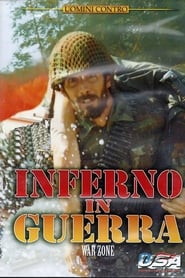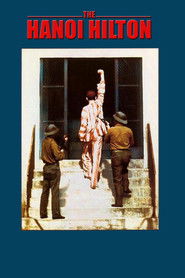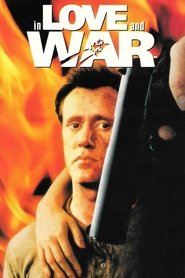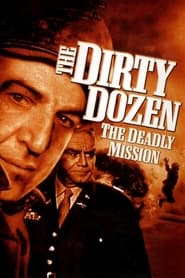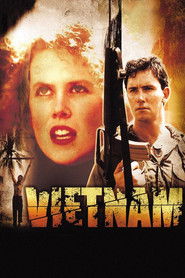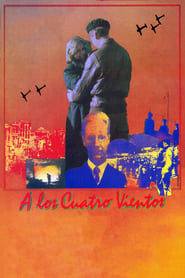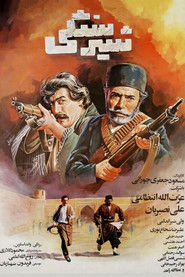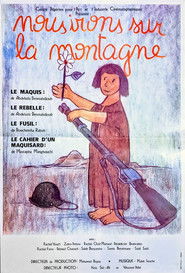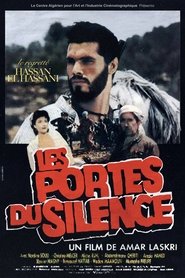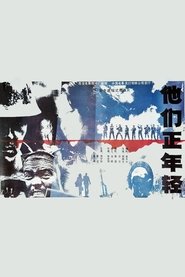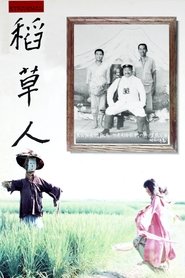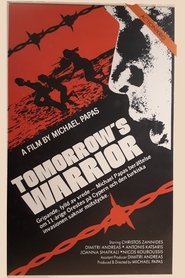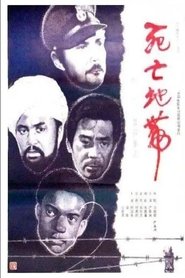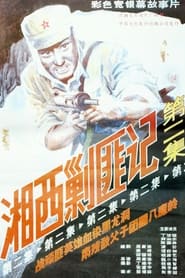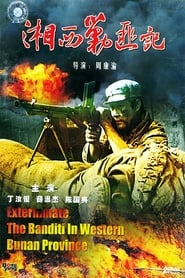New War Movies on Pantaflix - Page 309
-
The Secret Government: The Constitution in Crisis
1987
star 5.6In the revealing 24 minutes of the PBS video documentary The Secret Government available for free viewing below, host Bill Moyers exposes the inner workings of a secret government much more vast that most people would ever imagine. Though originally broadcast in 1987, it is even more relevant today. Interviews with respected top military, intelligence, and government insiders reveal both the history and secret objectives of powerful groups in the hidden shadows of our government. -
Hell on the Battleground
1987
star 3.4Vietnam: The battle-tested Seargents Casey and Lance have to accompany a young Lieutenant and a group of newly arrived teenage soldiers on a practice trip in the jungle. But the trip turns bloody serious when they are discovered by Russian scouts and have half a company follows hot on their heels. -
The Hanoi Hilton
1987
The Hanoi Hilton
1987
star 5.2Lionel Chetwynd's film documents the horrific struggles that faced American POWs held in the North Vietnamese prison Hoa Lo -- more infamously known as the Hanoi Hilton -- between 1964 and 1975. Williamson (Michael Moriarty) leads a group of American servicemen who are prisoners at the detention camp. He assumes command after Cathcart (Lawrence Pressman) is dragged off to be tortured. -
Madrid
1987
Madrid
1987
star 5.8Hans, a German director, is in Madrid to film a television production about the capital and the Civil War, 50 years after it occurred. Accompanied by Lucía, his editor, and Goyo, his cinematographer, he films shots of the modern city, searching for spaces and people related to its past. At the same time, he views materials related to the past. In this search, Hans questions the point of his project, and disagrees with his producers until he discovers a project that he is passionate about. -
In Love and War
1987
In Love and War
1987
star 4This movie is an account of US Navy Commander James Stockdale's 8 year imprisonment in North Vietnam. During his confinement in such camps as the infamous "Hanoi Hilton", Stockdale, among other senior officers, led a resistance group against the North Vietnamese, facing torture, isolation, and starvation in attempts to break their wills. Back in the US, Stockdale's wife, Sybil, begins working with other POW wives to try to get information on their husbands and to inform the world on their treatment. -
The Mother of the Kings
1987
star 6.2Made in 1982, shelved for five years. Story opens with Lucja Krol's husband under the tram. She gives birth to her fourth son on the floor of their new apartment. Neighbor Wiktor, a communist intellectual, befriends the poverty-stricken family but is soon arrested and sent to jail. During the war Lucja narrowly escapes a Nazi roundup at the black market. Her sons hold ardent Communist meetings in their apartment, with her blessing. Lucja works hard, but without complaint. After the war, Klemens is inexplicably arrested, accused by the new regime of being a collaborator. Wiktor, now a high-ranking party member, trying to defend him, himself falls into disgrace. Klemens is tortured to "confess" and dies in jail, a Communist to the end. Lucja is never told about his fate. -
The Dirty Dozen: The Deadly Mission
1987
star 5Learning of a Nazi plot to attack Washington, D.C. with a deadly nerve gas, Major Wright leads twelve convicts on a suicide mission deep into occupied France to destroy the secret factory where the poison is made. -
Vietnam
1987
Vietnam
1987
star 7.7The trials and tribulations of the Goddard family after the entry of Australia into the Vietnam War. -
To the Four Winds
1987
To the Four Winds
1987
star 5A poet and journalist must take under the role of a Basque army commander during the siege of the Basque Count -
The Stone Lion
1987
The Stone Lion
1987
star 7When a British officer is found dead on a pipeline, tensions rise between a local tribe and authorities. -
Cards on the Table: Wreath on the Grave
1987
The year 1963 drags on heavily. Rumors about the US-backed coup are spreading. Ngo Dinh Diem's government continues to suffer from a severe loss of popularity that is still worsening. Two lots of trafficked drugs from the Golden Triangle to South Vietnam have vanished into thin air. Luan sets out on what may be his final collaboration with Ngo Dinh Nhu. -
We Shall Go Onto the Mountain
1987
Four short films covering the Algerian War, directed by three filmmakers, each telling a different story: The Maquis, The Rebel, The Rifle, and The Notebook of a Maquisard. -
Gates of Silence
1987
Gates of Silence
1987
star 10In 1955, what was known as the "Algerian War" gradually escalated into all-out war, and the French army inexorably transformed into a soldiery accustomed to colonial humiliation and massacres. Amar is a young deaf and mute man who wants to join the resistance, but he is rejected because of his disability, despite all the training he received from his father, who was an expert in hunting and horses. The raid on his village, which he watches helplessly, drives him to seek revenge, he who had until then been locked away in "The Gates of Silence." -
In Their Prime
1987
In Their Prime
1987
At the Sino-Vietnamese border, a group of nine people headed by a deputy company commander and a platoon commander braved the enemy's intensive artillery fire to the No. 3 post, a natural cave, and began three months of hard fighting. -
Strawman
1987
Strawman
1987
star 7.1In 1940s Taiwan, during the last days of Japanese rule, an impoverished farming village is less concerned with colonial politics than with feeding their families. One day, an American bomb falls onto a field, where it lies unexploded. -
Last Step
1987
Last Step
1987
Stepan Astashonok, a graduate of the orphanage, came to the factory and seemed to have found his business. He soon got married, but he lived few happy days. When the war began, the Germans stole his wife and children to Germany. Having reached Berlin, the hero did not lose hope of finding them. Stepan learned about the death of his daughter, son and wife in the last days of the war. But the soldier continued to fight and tried to be human.… -
Avrianos polemistis
1987
-
Xiang Xi Jiao Fei Ji
1987
 Netflix
Netflix
 Amazon Prime Video
Amazon Prime Video
 Apple iTunes
Apple iTunes
 Apple TV Plus
Apple TV Plus
 Disney Plus
Disney Plus
 Google Play Movies
Google Play Movies
 Paramount Plus
Paramount Plus
 Hulu
Hulu
 HBO Max
HBO Max
 YouTube
YouTube
 fuboTV
fuboTV
 Peacock
Peacock
 Peacock Premium
Peacock Premium
 Amazon Video
Amazon Video
 The Roku Channel
The Roku Channel
 AMC+
AMC+
 Kocowa
Kocowa
 Hoopla
Hoopla
 The CW
The CW
 Vudu
Vudu
 Starz
Starz
 Showtime
Showtime
 PBS
PBS
 Pantaflix
Pantaflix
 FXNow
FXNow
 Tubi TV
Tubi TV
 Kanopy
Kanopy
 Comedy Central
Comedy Central
 Crunchyroll
Crunchyroll
 Microsoft Store
Microsoft Store
 Redbox
Redbox
 Sun Nxt
Sun Nxt
 ABC
ABC
 DIRECTV
DIRECTV
 Crackle
Crackle
 Fandor
Fandor
 Plex
Plex

